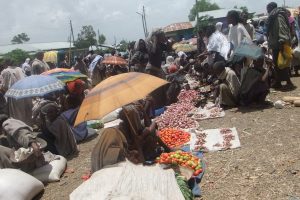Re-post from IFPRI.ORG.
On March 13, the first COVID-19 case was confirmed in Ethiopia. Three days later, the government closed schools, banned all public gatherings and sporting activities, and recommended social distancing. Other measures to contain the spread of the virus soon followed. Travelers from abroad were put into a 14-day mandatory quarantine, bars were closed until further notice, and travel through land borders was prohibited. Several regional governments banned all public transportation and imposed restrictions on other vehicle movement between cities and rural areas.
While these actions are expected to slow the spread of the disease, they are likely to have substantial effects on food value chains, and thus on the livelihoods of farmers and other workers, and on consumption.
To understand these effects, we conducted a qualitative and rapid appraisal of the vegetable value chain. Building on a large value chain survey that IFPRI undertook in February, we conducted phone interviews (March 23-April 2) with key stakeholders along the vegetable value chain from main producing areas in the Central Rift Valley to Addis Ababa: Small-scale farmers, large scale investors, brokers, agro-input dealers, and developmental agents. Given that this assessment was done based on a limited and non-representative number of interviews, caution is warranted for extrapolation of our observations. They should be seen more as hypotheses of impacts on these value chains. (We intend to substantiate these findings with more representative surveys in the near future.) Read more.
